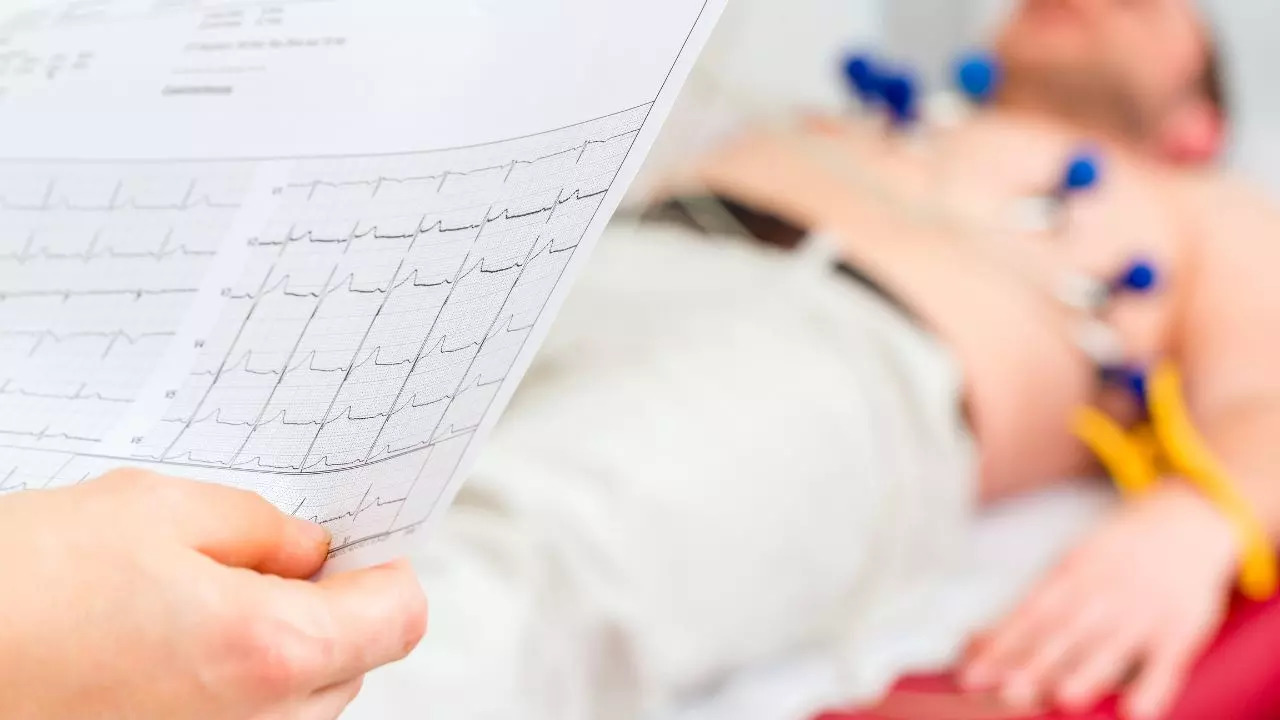Researchers find potential new treatment for cardiac arrhythmias
A new study by researchers at the University of Arizona-Phoenix School of Medicine and the University of California Davis Health found a new target for developing a drug to treat atrial fibrillation (AFib or AF), which is the most common type irregular heart rhythm. .
Researchers say the American Heart Association predicts that more than 12 million people will have atrial fibrillation by 2030 and that existing treatment approaches are inadequate.
Proteins involved in the physiological processes of the heart have been the subject of AFib research for some time. Until recently, most research suggested that treating AFib by inhibiting specific small-conductance calcium-activated potassium channels, or SK channels, could reduce or worsen arrhythmias under different conditions.
Nipavan Chiamvimonvat, MD, chair of the Department of Basic Medical Sciences at the U of A School of Medicine in Phoenix, said, “Our study used pioneering experimental and computational approaches to decipher how the human SK2 channel can be dynamically coregulated. The study is especially timely considering that SK channel inhibitors are currently in clinical trials to treat AFib, so a better understanding of their regulatory mechanisms is essential.”
For the study, the researchers examined the role of a lipid, phosphatidylinositol 4,5-bisphosphate or PIP2, in regulating the SK2 channel. PIP2 is an integral component of all plant and animal cell membranes and acts as a messenger for a variety of signaling pathways in the body.
Ryan Woltz, PhD, a computational biologist and co-first author of the paper and research assistant professor at Phoenix School of Medicine, said: “Because PIP2 plays such an essential role in multiple ion channels, the regulation of cardiac ion channels through “Through PIP2, it presents a new mechanism for lipid regulation of cardiac excitability and function.”
Currently, SK channels are the only potassium channels known to be upregulated in heart failure, and their regulation plays a critical role in cardiac excitability and how alterations in heart rhythm develop.
Yang Zheng, PhD, postdoctoral researcher at Phoenix School of Medicine and co-first author, said, “Since PIP2 is known to be dysregulated in heart failure, our study provides critical translational insights into potential mechanisms of cardiac arrhythmias in heart failure.”
Using comparative models, the research team generated models of the human SK2 channel in closed, intermediate, and open states. They then used molecular dynamics simulations to explore the molecular mechanisms of SK2 channel modulation by PIP2.
Vladimir Yarov-Yarovoy, PhD, professor at UC Davis Health, said, “The structural insights from our study will be useful in designing new inhibitors of SK2 channels to treat cardiac arrhythmias.”
Co-senior author Igor Vorobyov, PhD, an associate professor at UC Davis Health, said the team is already using similar computational approaches to study other SK channel subtypes.
“I am delighted to participate in this multi-university and multi-disciplinary collaborative research study and look forward to continuing the collaboration,” Vorobyov said. “We are currently working on applying a similar pioneering experimental/computational approach to the modulation of SK channels using drug molecules, which can enhance or inhibit the function of these ion channels and can be used as potential treatment options for AFib and other cardiovascular diseases.
(With contributions from ANI)
Disclaimer:
The information contained in this post is for general information purposes only. We make no representations or warranties of any kind, express or implied, about the completeness, accuracy, reliability, suitability or availability with respect to the website or the information, products, services, or related graphics contained on the post for any purpose.
We respect the intellectual property rights of content creators. If you are the owner of any material featured on our website and have concerns about its use, please contact us. We are committed to addressing any copyright issues promptly and will remove any material within 2 days of receiving a request from the rightful owner.

